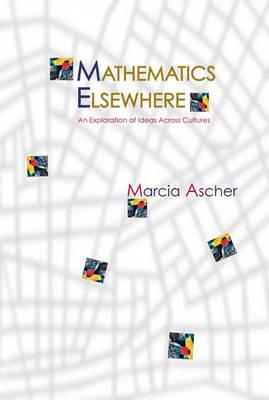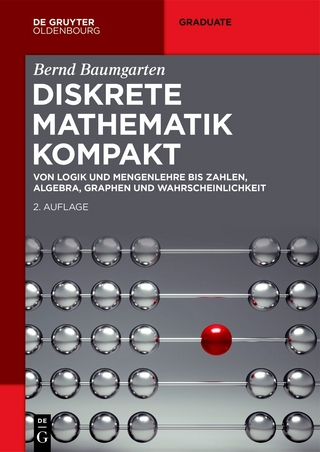
Mathematics Elsewhere
An Exploration of Ideas Across Cultures
Seiten
2002
Princeton University Press (Verlag)
9780691070209 (ISBN)
Princeton University Press (Verlag)
9780691070209 (ISBN)
- Titel ist leider vergriffen;
keine Neuauflage - Artikel merken
This text contributes to a global view of mathematics. Presenting mathematical ideas of peoples from a variety of small-scale and traditional cultures, it humanizes our view of mathematics and expands our conception of what is mathematical. Through examples of how particular societies structure time, reach decisions about the future, make models and maps, systematize relationships and create intriguing figures, Marcia Ascher demonstrates that traditional cultures have mathematical ideas that are far more substantial and sophisticated than is generally acknowledged. Malagasy divination rituals, for example, rely on complex algebraic algorithms and some cultures use calendars far more abstract and elegant than our own. Ascher also shows that certain concepts assumed to be universal - that time is a single progression, for instance, or that equality is a static relationship - are not. The Basque notion of equivalence, for example, is a dynamic and temporal one not adequately captured by the familiar equal sign. Other ideas taken to be the exclusive province of professionally trained Western mathematicians are, in fact, shared by people in many societies.
The ideas discussed come from geographically varied cultures, including the Borana and Malagasy of Africa, the Tongans and Marshall Islanders of Oceania, the Tamil of South India, the Basques of Western Europe and the Balinese and Kodi of Indonesia.
The ideas discussed come from geographically varied cultures, including the Borana and Malagasy of Africa, the Tongans and Marshall Islanders of Oceania, the Tamil of South India, the Basques of Western Europe and the Balinese and Kodi of Indonesia.
Marcia Ascher is Professor Emerita of Mathematics at Ithaca College. She is the coauthor of "Code of the Quipu: A Study in Media, Mathematics, and Culture" and the author of "Ethnomathematics: A Multicultural View of Mathematical Ideas".
Preface ix Introduction 1 CHAPTER 1: The Logic of Divination 5 CHAPTER 2: Marking Time 39 CHAPTER 3: Cycles of Time 59 CHAPTER 4: Models and Maps 89 CHAPTER 5: Systems of Relationships 127 CHAPTER 6: Figures on the Threshold 161 CHAPTER 7: Epilogue 191 Index 205
| Erscheint lt. Verlag | 25.8.2002 |
|---|---|
| Zusatzinfo | 6 halftones. 52 line illus. 5 tables. |
| Verlagsort | New Jersey |
| Sprache | englisch |
| Maße | 152 x 235 mm |
| Gewicht | 482 g |
| Themenwelt | Mathematik / Informatik ► Mathematik |
| Sozialwissenschaften ► Ethnologie | |
| Sozialwissenschaften ► Soziologie | |
| ISBN-13 | 9780691070209 / 9780691070209 |
| Zustand | Neuware |
| Informationen gemäß Produktsicherheitsverordnung (GPSR) | |
| Haben Sie eine Frage zum Produkt? |
Mehr entdecken
aus dem Bereich
aus dem Bereich
Von Logik und Mengenlehre bis Zahlen, Algebra, Graphen und …
Buch | Softcover (2024)
De Gruyter Oldenbourg (Verlag)
CHF 104,90
Grundlagen für das Bachelor-Studium
Buch | Hardcover (2023)
Hanser (Verlag)
CHF 55,95


